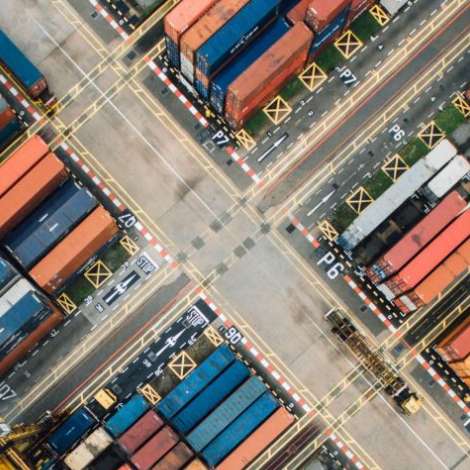The 1990 Incoterms of Interpretation of Incoterms lists a total of eleven trade terms, the main points of which are as follows:

(1) Ex-works (EXW)
It means that the seller has the responsibility to deliver the prepared goods to the buyer at its location, that is, the workshop, factory, warehouse, etc., but is usually not responsible for loading the goods on the vehicle prepared by the buyer or clearing the goods. Buyer assumes all costs and risks of shipping the goods from Seller’s location to the intended destination.
(2) Freight Carrier (FCA)
It means that the seller shall be responsible for the goods handed over by it, and after going through customs, deliver them to the carrier designated by the buyer for custody at the designated place. In accordance with commercial practice, when the seller is required to cooperate with the carrier by contract, the seller may do so at the buyer’s risk and expense. This term applies to any shipping method.
(3) Delivery Aside Ship (FAS)
It means that the seller delivers the goods to the side of the ship at the designated port of shipment or on the barge. From then on, the buyer must bear all the costs and risks of the loss or damage of the goods, and the buyer must go through the export customs clearance procedures. This term applies to sea or inland water transport.
(4) Free on board (FOB)
It means that the seller delivers the goods after the goods have passed the ship’s rail at the designated port of shipment. After the goods have passed the ship’s rail, the buyer must bear all the costs, risks, loss, or damage of the goods, and the seller is also required to go through the export customs clearance procedures for the goods. This term applies to sea or inland water transport.
(5) Cost plus freight (CFR or c&F)
It means that the seller must pay the expenses and freight required to transport the goods to the designated port of destination, but after the goods are delivered to the deck of the ship, the risk, loss, or damage of the goods and the additional expenses caused by the accident after the goods have passed the designated port. After the ship’s rail, it will be borne by the seller to the buyer. In addition, the seller is required to go through the customs clearance procedures for the export of the goods. This term applies to sea or inland water transport.
(6) Cost, Insurance, and Freight (CIF)
It means that in addition to the seller’s obligations the same as the “cost and freight” term, the seller is also required to apply for marine insurance and pay the insurance premium for the loss or damage of the goods in transit. This term applies to sea or inland water transport.
(7) Freight paid to (CPT)
This term means that the seller pays the freight for the delivery of the goods to the named destination. The risk of loss of or damage to the goods and any additional costs arising from events occurring after the goods have been delivered to the carrier shall pass from the seller to the buyer from the time the goods have been delivered to the care of the carrier. In addition, the seller must go through customs clearance procedures for the export of goods. This term applies to all modes of transport, including multimodal transport.
(8) Delivery on board (DES) at the destination port
It means that the seller performs the following obligations to deliver the prepared goods to the buyer without going through the customs clearance procedures for the import of the goods on the deck of the designated port of destination. Therefore, the seller must bear all the costs including the delivery of the goods to the designated port of destination. with risk. This term applies only to sea or inland water transport.
(9) Delivery at the port of destination (DEQ)
This term refers to the seller’s performance of the obligation to deliver the prepared goods to the buyer at the wharf at the designated port of destination, after customs clearance for import, and the seller shall bear all risks and expenses, including customs, dues, and other delivery costs. costs that arise. This term applies to sea or inland water transport.
(10) Delivery Duty Unpaid (DDU)
It means that the seller will deliver the prepared goods at the place designated by the importing country, and must bear all the costs and risks (excluding customs duties, taxes, and other official fees payable when importing) of the goods to the designated place, and must also bear Costs and risks of customs formalities. The buyer shall bear the additional costs and risks arising from the failure to timely clear the goods for import. This term applies to all modes of transportation.
(11) Delivery After Duty Paid (DDP)
DDP means that the seller delivers the prepared goods at the designated place in the importing country, bears all the costs and risks of transporting the goods to the designated place, and handles import customs clearance. This term can be applied to various modes of transportation.
DDPFORWORLD-Professional freight forwarder in China
DDP for World is a full-service and shipping forwarder dedicated to assisting our clients in focusing and growing their businesses. We do DDP shipping since 2015 by handling home décor, Pet products, battery, power banks, DG cargo, general cargo and Amazon FBA forwarding service. We make your shipping easier and faster by Sea, Air, Express, Truck or Railway. If you have any questions or needs about freight forwarders, please feel free to contact us, we will serve you wholeheartedly.
Contact DDPFORWORLD:
Email: info@ddpforworld.com
